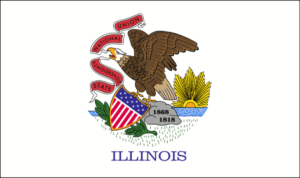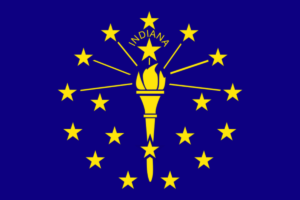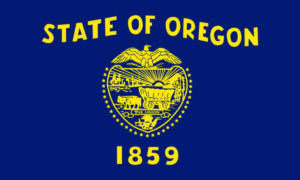It is vital to learn about pharmacy technician state license requirements so that you use your time as wisely as possible. Some states still don’t even require a license to practice as a pharmacy technician, although they are getting more and more rare.
See the list below to find your state’s information, updated in 2022.
US State Requirements and License Regulations
More states coming soon!
You’ll find information and links for:
- Each state’s board of pharmacy
- Whether the state regulates pharmacy technicians
- Whether certification is required
- What certification exam(s) is/are recognized by the state
- Whether licensure is required
- Whether training is required
- The specific requirements for becoming a pharmacy tech in your state
- Whether there are continuing education (CE) requirements, and if so, what they are
- The general functions that a pharmacy technician can perform in your state
- The required pharmacist-to-technician ratio
- Whether experiential training is required, and if so, how much
- What others’ experiences have been when they became a pharmacy technician in your state
…and more!
Armed with this information, you will take a shortcut to success as a pharmacy technician in your state.
Pharmacy Technician State Requirements Are Changing Quickly
Some states require licensure and/or certification, some do not. Those that do not are recognizing the need for standardization of pharmacy technician skills, education, and training.
The boards of pharmacy in several states have organized “task forces” specifically devoted to pharmacy technicians. These groups of practicing pharmacy technicians and pharmacists explore issues regarding the possible regulation of pharmacy technicians. The task force then reports back to the board of pharmacy with their recommendations. This is causing fast change in the regulation of pharmacy technicians in the states that do not currently regulate this field.
That makes it vital for you to stay up-to-date on your state’s most recent requirements. Use the links on your page to access your state’s Board of Pharmacy and any other agency that may oversee the practice of pharmacy technicians.
A key component of these state taskforces is a discussion of pharmacy technician education/training. This is the foundation of standardization of skills, knowledge, and competencies.
The pharmacy field has changed greatly in recent years, and will continue to change rapidly. Pharmacists find themselves needing to delegate more and more tasks to pharmacy technicians. This means that there will be more and more responsibility placed on pharmacy technicians, requiring deeper and deeper levels of education and training.
And don’t forget the importance of preparing for the certification exam. Our pharmacy tech practice exam prepares you well.
The pharmacy technician requirements for employment are dynamic and are changing rapidly. With the aging population and increase of the number of pharmacies and prescriptions in recent years, the responsibilities of the pharmacy technician have increased.
Due to the need to employ competent pharmacy technicians to handle the additional workload, the days of being trained “on-the-job” are going by the wayside. Each state maintains its own pharmacy laws and regulations through its State Board of Pharmacy, and each has its own provisions regarding pharmacy technicians.
State-Specific Pharmacy Technician Requirements
Though there are a few states remaining that do not require any registration, licensing, or certification for pharmacy technicians, most states practice one or more of the previous methods of regulation. We’ve compiled detailed information so you can stay up to date.
Some states require a simple registration, which involves filling out a personal history form and submitting a payment to the state for this registration. The state will perform a background check to ensure that no felony convictions are present on the applicant’s record. If everything checks out, a registration is approved. Licensing is similar, but may be conditional on passing a competency exam either given by the state or by an accredited national pharmacy technician certification provider.
Pharmacy Technician Requirements for Certification
Many states are requiring pharmacy technicians to become nationally certified within a certain time after being employed. Despite this probationary period, many employers in states that require certification prefer hiring technicians that are already certified or have completed a pharmacy technician course or program.
In order to become nationally certified, a pharmacy technician may take a competency exam either through the Pharmacy Technician Certification Board (PTCB) or the Institute for the Certification of Pharmacy Technicians. Each state has individual requirements for certification, so please consult your State Board of Pharmacy to determine which certification provider(s) is/are accepted by your state.
Both the Pharmacy Technician Certification Board (PTCB) and the Institute for the Certification of Pharmacy Technicians have similar testing formats with numerous testing sites across the country. To take an exam, one would need to register and pay the testing fee, then schedule a testing date and site.
Continuing Education Requirements
After passing the examination, to maintain certification, a pharmacy technician is required to complete 20 hours of continuing education (CE) every 2 years, with one of those hours being in pharmacy law. Most CE can be obtained for free or a modest fee by studying an accredited article pertaining to pharmacy practice and passing a test. Other CE can be obtained by performing extra duties above and beyond those that are common in the workplace, or by taking a math or science college course.
As a person interested in becoming a pharmacy technician, many community and online colleges offer courses or even associate’s degrees with an emphasis on the pharmacy technician role. Having some formal education in combination with a state license and national certification will improve your chances of being hired and developing a rewarding career in pharmacy.
Michelle Goeking-Frazer (BM, CPhT, PharmD) is a pharmacist with years of teaching and leadership experience. Prior to achieving her Doctor of Pharmacy (PharmD) at University of Illinois at Rockford College of Pharmacy she was a practicing pharmacy technician for 16 years in both community and hospital settings. She has 5 years of experience creating and directing a pharmacy technician education program at a community college, as well as writing PTCE test items for various publishers.














































1 thought on “Pharmacy Technician State License Requirements”